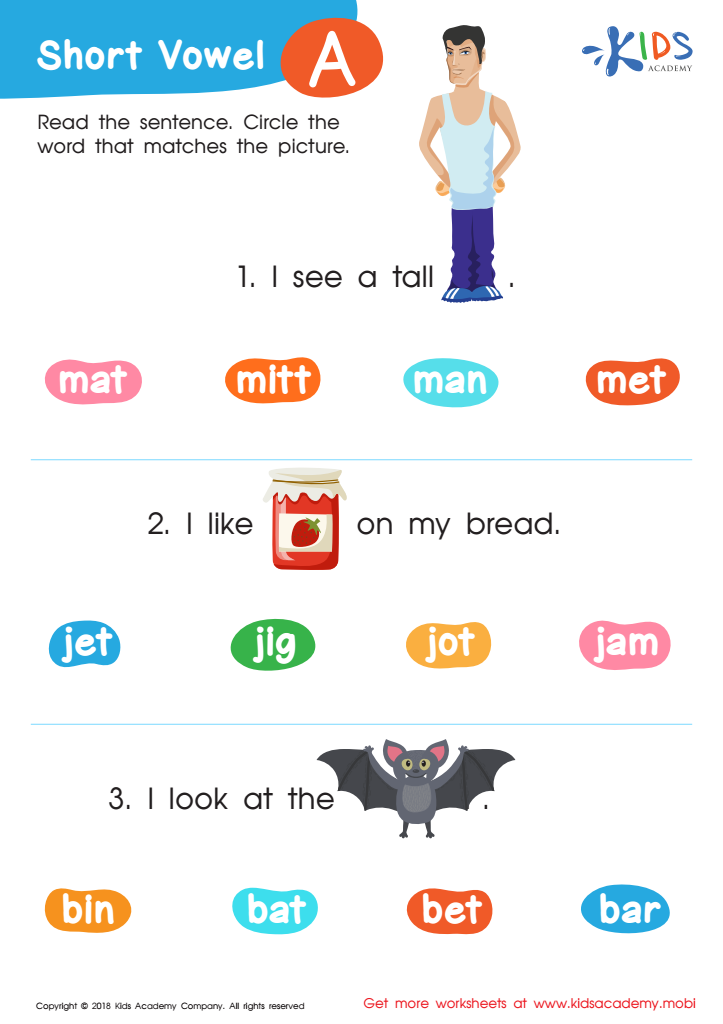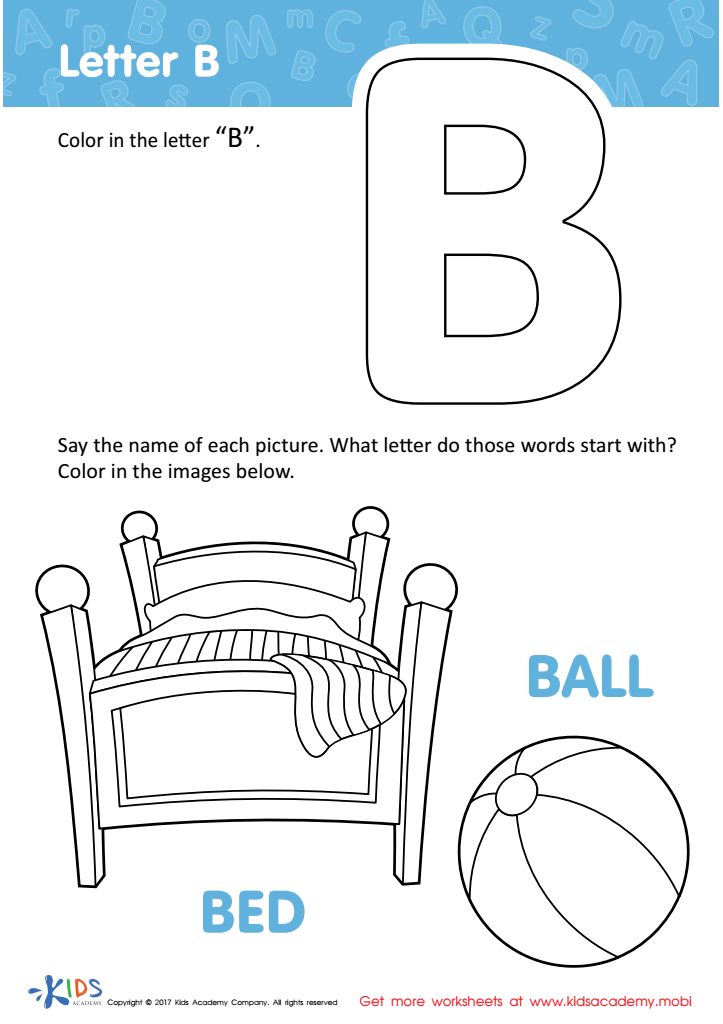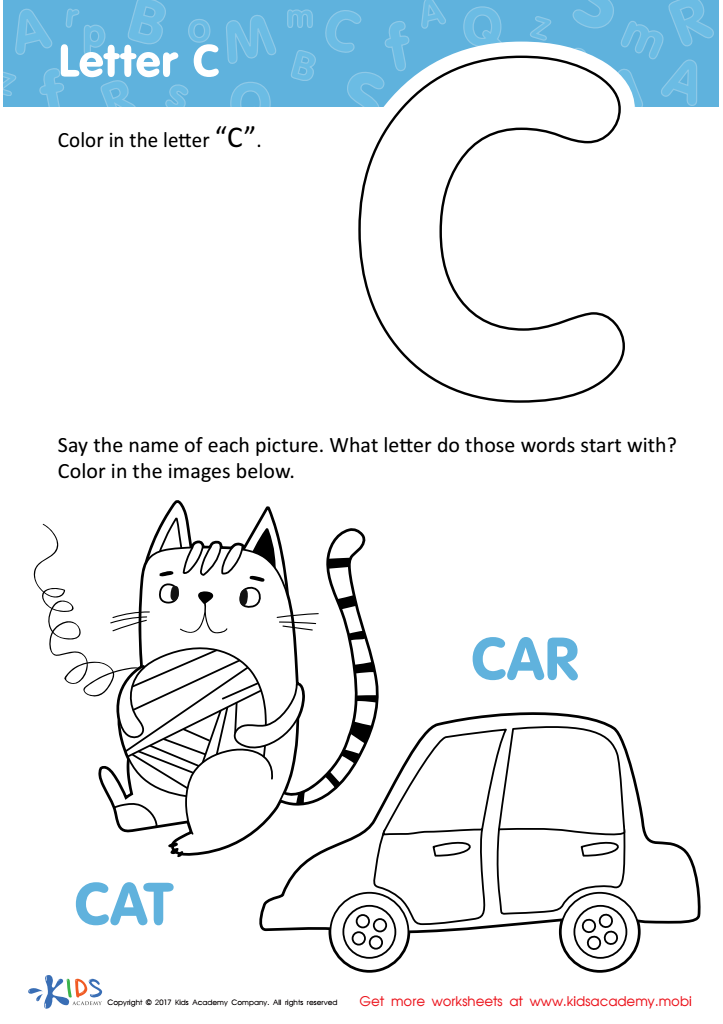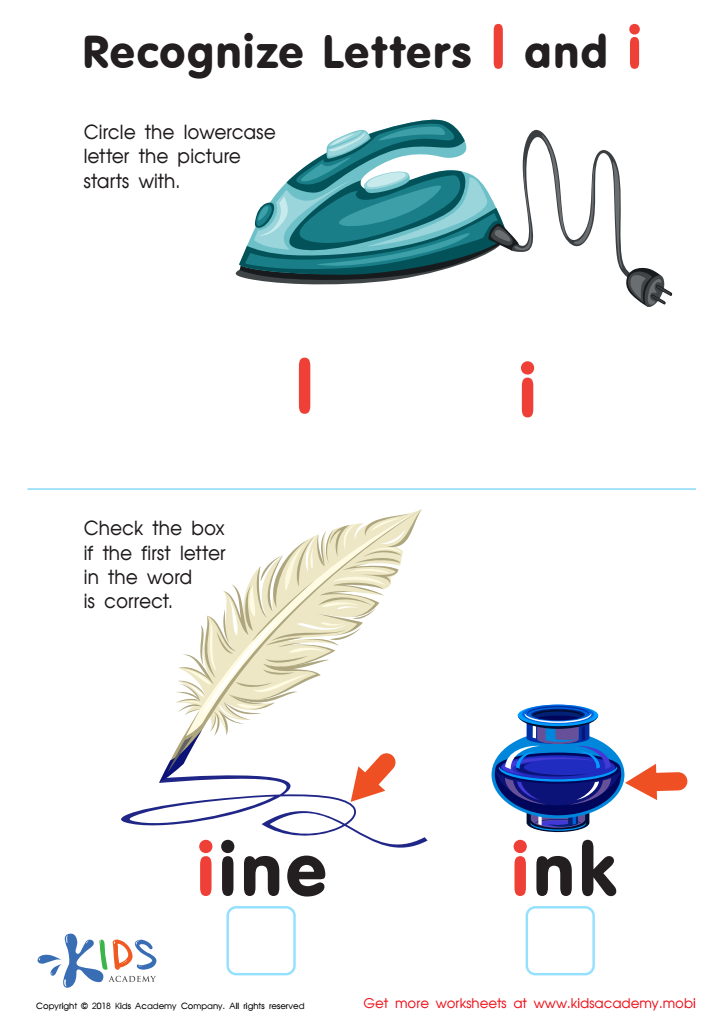Writing practice Normal ABC Letters Worksheets for Ages 6-7
6 filtered results
-
From - To
Our Writing Practice Normal ABC Letters Worksheets for Ages 6-7 are the perfect tools to help young learners master their handwriting skills. These printable worksheets are designed to make learning the alphabet both fun and effective. Each sheet focuses on individual letters, offering plenty of practice space and guided lines to ensure proper letter formation. Ideal for classroom or home use, these worksheets support foundational literacy skills, making the transition to independent writing smooth for early learners. Help your child strengthen their penmanship with engaging and developmentally appropriate activities that make writing the ABCs an enjoyable experience.


Short Vowel /a/ Worksheet


Letter B Coloring Sheet


Letter A Coloring Sheet


Letter H Tracing Page


Letter C Coloring Sheet


Recognize Letters l and i Worksheet
Writing practice for normal ABC letters is vital for children aged 6 to 7 because it lays the foundation for literacy and cognitive development. At this age, children are transitioning from recognizing letters to forming them accurately, which is crucial for reading fluency and comprehension. Engaging in regular writing practice helps improve fine motor skills, hand-eye coordination, and muscle memory, allowing children to write more efficiently and legibly.
For parents and teachers, encouraging writing practice ensures that children develop a sense of confidence and pride in their writing abilities. This confidence fosters a positive attitude towards learning and school performance. Moreover, writing helps in reinforcing letter recognition and phonetic understanding, both of which are essential components of effective reading strategies. As children become more adept at forming letters, they also learn to express their thoughts clearly and organize ideas, which will enhance their overall communication skills.
By prioritizing the practice of writing normal ABC letters, parents and teachers can support children in becoming proficient writers and readers. This foundational skill not only benefits academic success but also has long-lasting effects on personal development, creativity, and critical thinking abilities, making it a fundamental aspect of early education.
 Assign to My Students
Assign to My Students



















